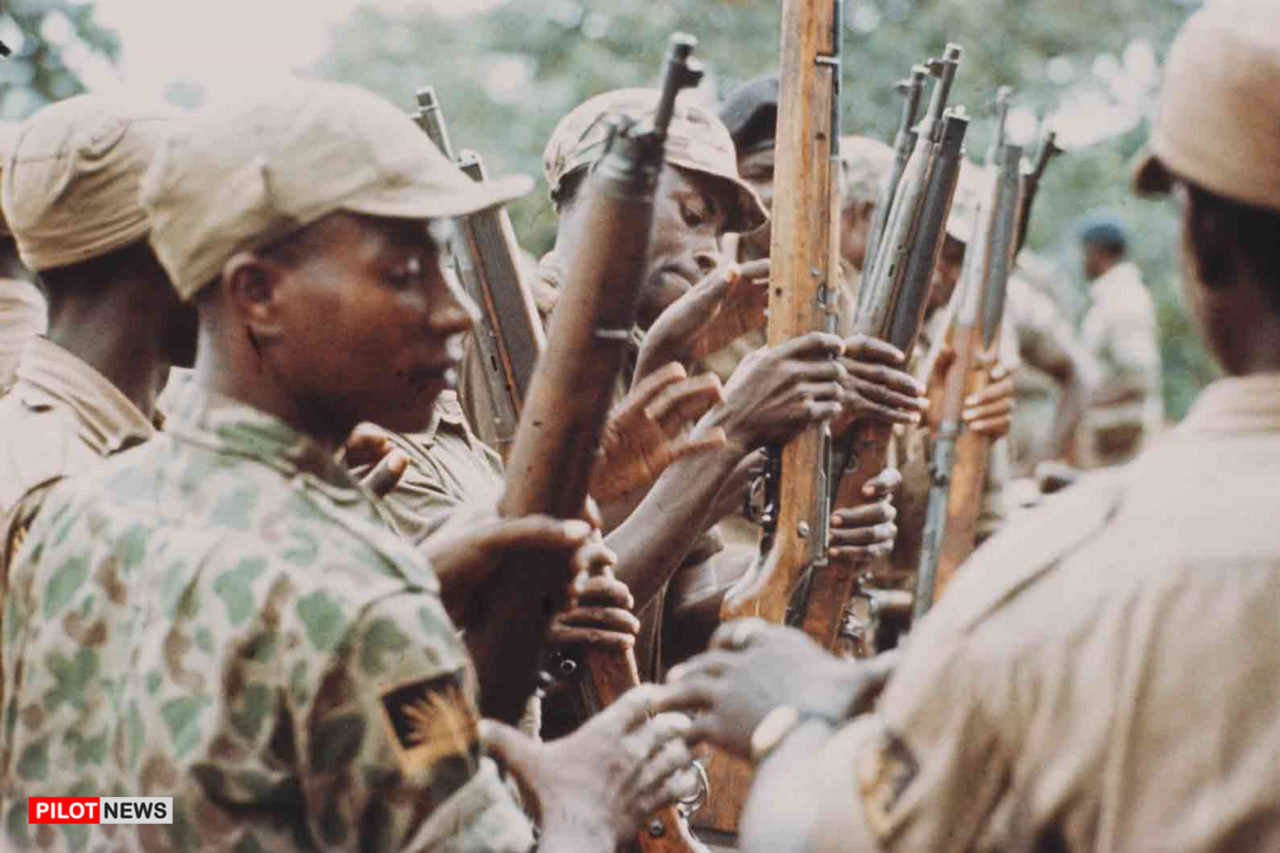Evelyn Okororie had just returned home from the market in Nigeria’s Midwest region, when neighbors informed her that an airstrike had killed her mother, brother and three of her children.
The year was 1969, and it was two months before the end of the brutal two-year Nigeria-Biafra war, which killed an estimated one to three million people, mostly from the Igbo tribe in the eastern part of the country.
It was said to be the world’s first televised war and the haunting images of starving children caught in a civil war shocked the world.
Protests were held around the world and Bruce Mayrock, a student at Columbia University, set himself on fire at the United Nations headquarters in New York to protest the war in Biafra.
Beatles singer John Lennon returned his MBE in a protest over Britain’s foreign policy, which included Biafra and the Vietnam war.
Okororie recalls that she and her seven children had taken refuge in Oguta, a lakeside town near a local airport, which served as Biafra’s major supply line for arms and relief materials from international charities.
But tragedy struck when Nigerian combatants launched an airstrike.
“The bomb fell on my older brother’s house,” Okororie said of the missile that missed its target, an adjacent military encampment.
“My mother died with three of my children, two boys, and a girl,” she told CNN.
Okororie says she wished she had died, too. “I looked for death but I couldn’t find it.”
Now in her 80s, Okororie is one of the millions of civilians who lived in what was then Biafra — a secessionist state carved out from Nigeria’s southeast in 1967.
A high ranking military officer called Chukwuemeka Odumegwu Ojukwu led the breakaway republic.
Ojukwu, the son of a wealthy businessman, studied history at Oxford University. He returned to Nigeria in 1955 after his graduation and later joined the army where he was eventually appointed military governor of the eastern region of Nigeria, mostly inhabited by Igbo people.
Latest posts by Pilotnews (see all)
- Anambra 2025 Governorship Election Might Be an Open Contest - April 24, 2024
- Anambra Assembly Passes Bill To Prohibit Secret Cults - April 24, 2024
- 2024 Aguata NBA Law Week: AG, Prof. Ifemeje Touts Landmarks and Expectations - April 19, 2024
previous
How Ghana's historic homecoming is changing Africa
next








